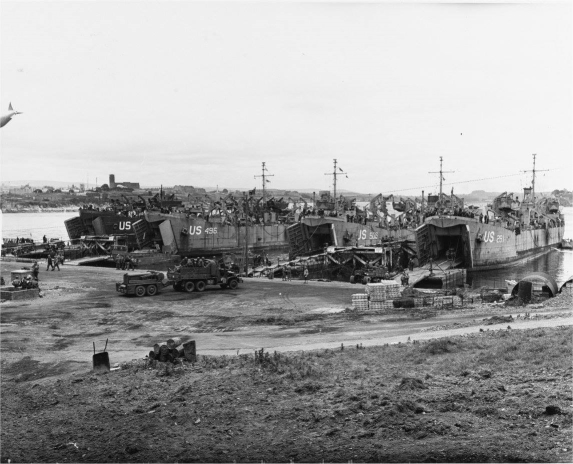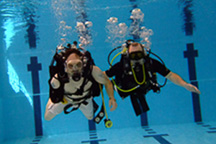US LST-523
- Details
- Written by Doug Carter

Southsea Sub-Aqua Club’s 2022 expedition project ‘US LST-523’ continues our desire to learn more about the WW2 Allied invasion of Normandy and the stories of the numerous individual ships, vessels and craft that took part in this momentous and historic endeavour. Our focus has been on smaller ships and craft rather than the more significant ships and whose role was less obvious, but just as vital, to the overall success of Operation NEPTUNE. The role of the Landing Ship Tank (LST) in military maritime operations is seldom told yet they were often the saviours and work horses of the invasion. The LSTs were also essential to the successful exercise to ensure that the Allied forces were able to be supplied with men, equipment and supplies to strengthen and reinforce their foothold in Normandy as the invasion continued.
Our investigation has revealed some surprising and unexpected results, which we are pleased to share through this report. As a result of our surveys and subsequent research we believe that these wrecks have been confused with each other over the passage of time. Indeed, our conclusions are that the wreck long reported to be LST-523 is in fact LST-496. We are extremely grateful for the support of the US Defense POW/MIA Accounting Agency (DPAA) for their help in confirming the casualty lists for US LST-496, 523 and 496.
This report sets out the evidence from survey and research which supports this conclusion. In addition to the investigation and recording these wrecks our LST project aimed to raise awareness of Operation NEPTUNE and its place in modern history. We also wish to illustrate the role recreational divers can play in documenting the historic environment that otherwise remains unseen and potentially forgotten.
Our sincere thanks also go to DRASSM, (Cecile Sauvage) for their valuable support and grant funding, Audrey Patreaux (GRIEME) for help with translation, Chris Howlett, Stephen Fisher and Danny Lovell for historical advice.



